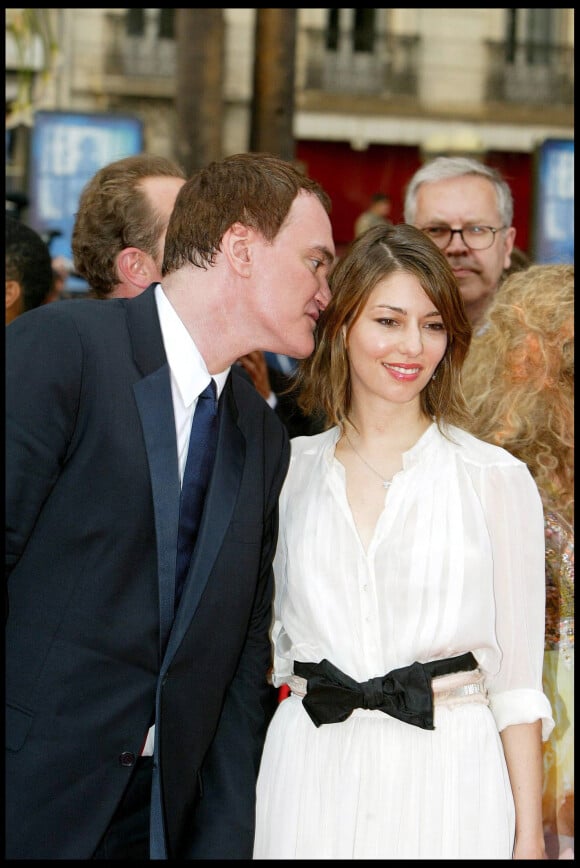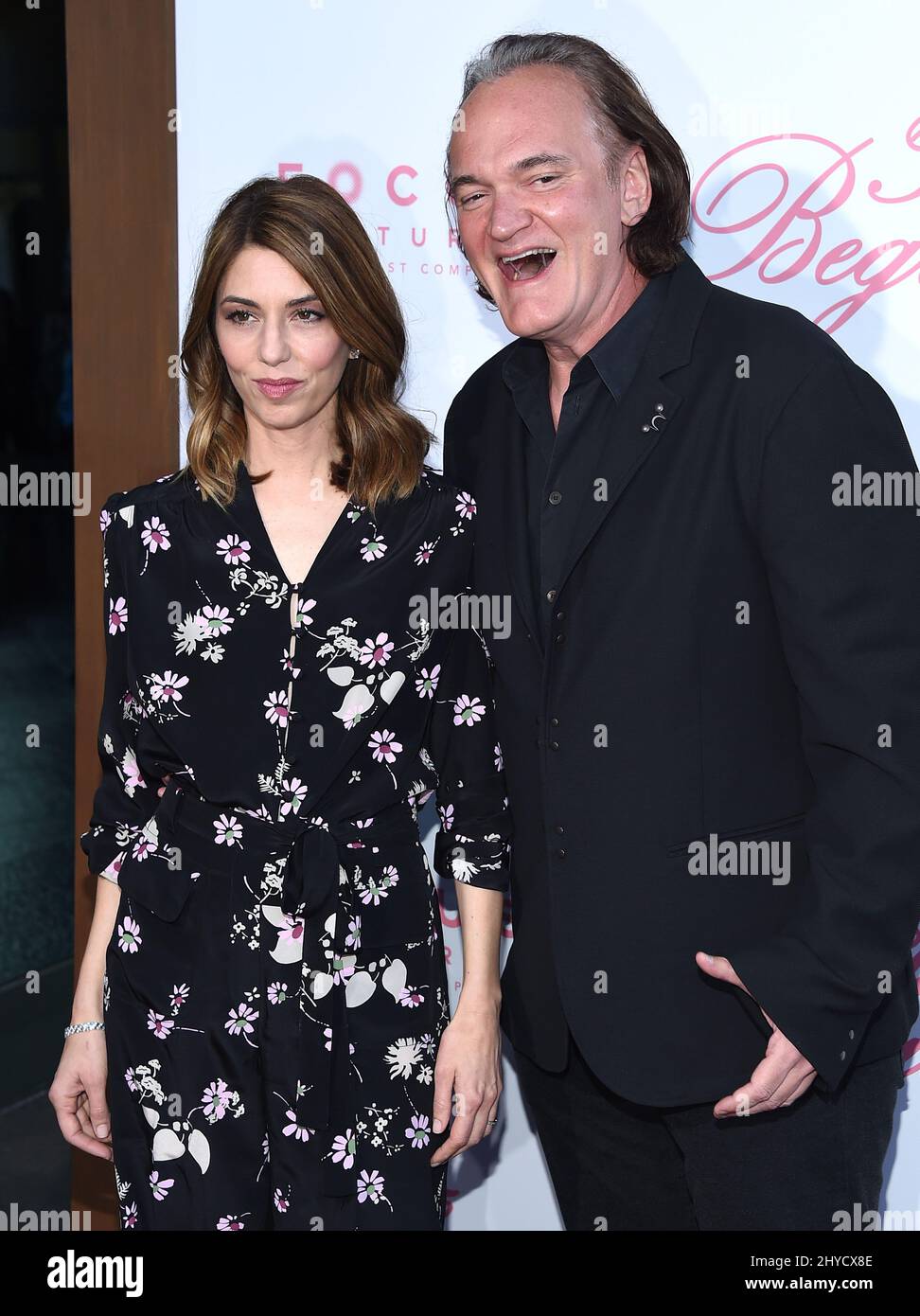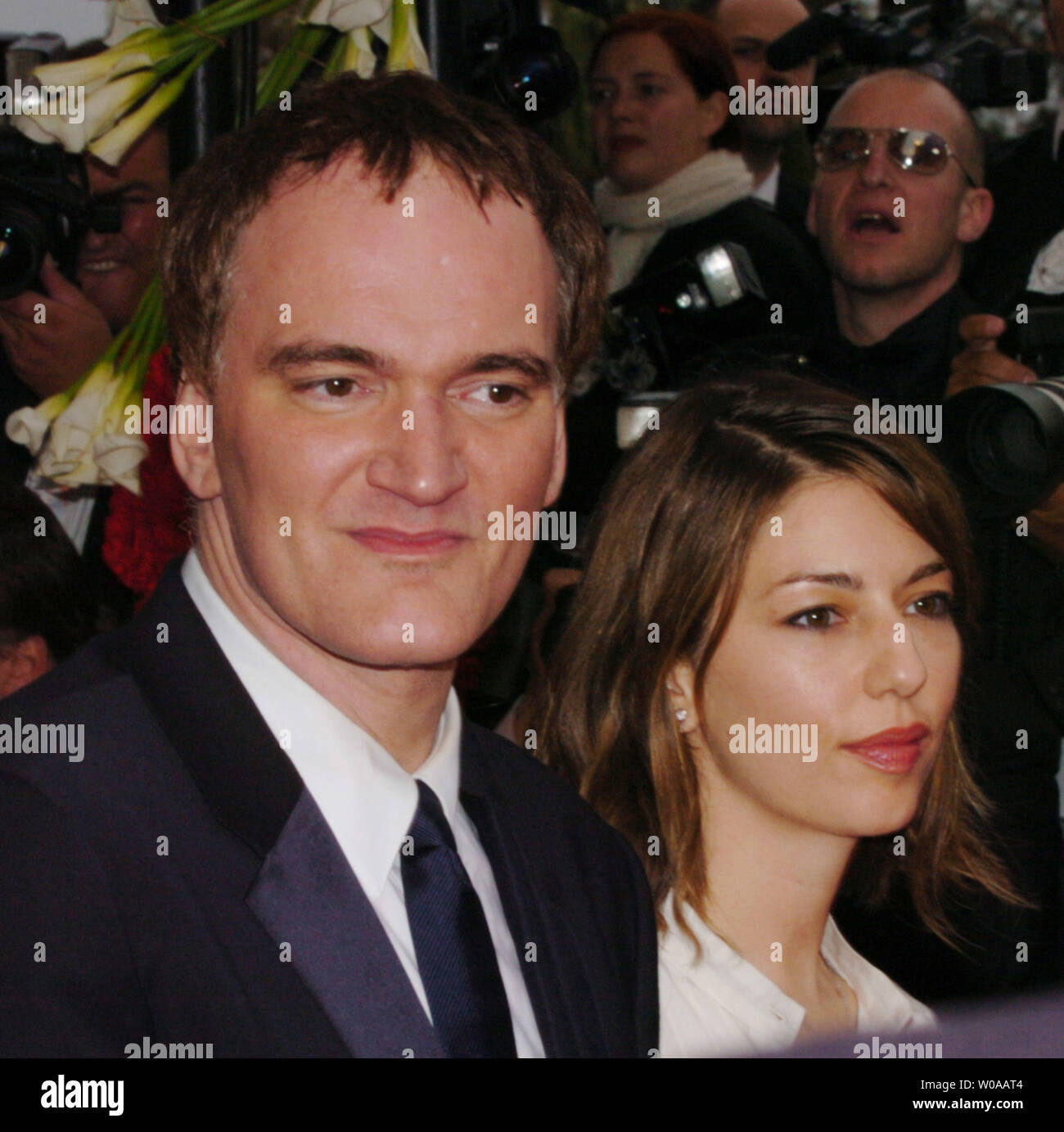When you hear the names Sofia Coppola and Quentin Tarantino in the same sentence, you're bound to sit up and take notice. These two creative powerhouses have left an indelible mark on the film industry, each in their own unique way. Sofia, with her soft yet powerful storytelling, and Quentin, with his raw and unapologetic approach, create a cinematic dynamic that's hard to ignore. Their stories, their styles, and their impact on modern cinema deserve a closer look. So, buckle up, because we're diving deep into the world of these two legends.
Let's face it, the film industry is filled with people who want to make a name for themselves. But Sofia Coppola and Quentin Tarantino didn't just want to make a name—they wanted to create a legacy. Both directors have carved out niches that reflect their personalities and artistic visions. Sofia's films often focus on themes of alienation and identity, while Quentin's work is known for its gritty, over-the-top violence and sharp dialogue. It's like comparing apples and oranges, but both fruits are equally delicious in their own right.
So, why are we talking about them together? Well, it's not just because they've both been part of some iconic moments in film history. It's also because their collaborations and interactions have sparked curiosity among fans and critics alike. Whether it's Sofia's small but memorable role in "The Godfather Part III" or Quentin's admiration for Sofia's directorial debut, there's a lot to unpack here. Let's get into it!
Read also:William L Johnson Age The Untold Story Of A Remarkable Life
Table of Contents
- Biography of Sofia Coppola
- Quentin Tarantino's Background
- Early Careers: Sofia and Quentin
- Cinematic Styles: A Comparison
- Their Collaborations
- Influences on Each Other
- Awards and Recognition
- Controversies and Challenges
- Impact on Modern Cinema
- The Future: What's Next?
Biography of Sofia Coppola
Data and Personal Info
Before we dive into Sofia's career, let's take a moment to appreciate the woman behind the lens. Sofia Coppola was born on May 14, 1971, in San Francisco, California. She's the daughter of legendary director Francis Ford Coppola and actress Eleanor Coppola. Growing up in a family where art and creativity were the norm, it's no surprise that Sofia found her way into filmmaking.
| Full Name | Sofia Carmina Coppola |
|---|---|
| Birth Date | May 14, 1971 |
| Birth Place | San Francisco, California, USA |
| Spouse | Thomas Mars |
| Children | 2 daughters |
Sofia's career didn't start in front of the camera by accident. She made her debut as a child actress in "The Godfather," where she played the role of Mary Corleone in "The Godfather Part III." While her acting career didn't take off, her transition to directing proved to be a game-changer. Her films, such as "The Virgin Suicides" and "Lost in Translation," have been praised for their emotional depth and nuanced storytelling.
Quentin Tarantino's Background
From Video Store Clerk to Hollywood Icon
Quentin Tarantino's journey to becoming one of the most influential directors of our time is nothing short of inspiring. Born on March 27, 1963, in Knoxville, Tennessee, Quentin didn't have the same privileged upbringing as Sofia Coppola. Instead, he worked at a video store, where he developed a deep love for films from all over the world. This eclectic mix of influences is evident in his work, from "Pulp Fiction" to "Kill Bill."
What sets Quentin apart is his ability to blend genres and create something entirely new. His films are known for their sharp dialogue, nonlinear storytelling, and unforgettable characters. Whether it's the iconic dance scene in "Pulp Fiction" or the brutal showdown in "Django Unchained," Quentin's work is a masterclass in modern filmmaking.
Early Careers: Sofia and Quentin
Breaking into the Industry
Sofia's early career was marked by her acting appearances, but it wasn't until she started directing that she truly found her voice. Her debut feature, "The Virgin Suicides," based on a novel by Jeffrey Eugenides, showcased her ability to capture the subtleties of human emotion. The film was praised for its haunting beauty and emotional resonance.
Meanwhile, Quentin was making waves with his first feature, "Reservoir Dogs." The film's gritty realism and innovative storytelling caught the attention of critics and audiences alike. It was a breakout success that put Quentin on the map as a director to watch. His follow-up, "Pulp Fiction," cemented his status as a cinematic icon.
Read also:Mc Lyte The Untold Story Of Hiphops Queen And Her Connection To Todd 1
Cinematic Styles: A Comparison
Two Sides of the Same Coin
When you compare Sofia Coppola and Quentin Tarantino's styles, it's like comparing a soft breeze to a thunderstorm. Sofia's films are often introspective, focusing on the internal struggles of her characters. She uses quiet moments and subtle gestures to convey complex emotions. Her films are like a slow-burning fire, warming you from the inside.
On the other hand, Quentin's films are like a fireworks display. They're loud, bold, and unapologetically in your face. His use of violence, humor, and sharp dialogue creates a cinematic experience that's both exhilarating and polarizing. Whether you love him or hate him, you can't deny his impact on the film industry.
Their Collaborations
Working Together Behind the Scenes
While Sofia and Quentin haven't shared the screen together, their mutual admiration has led to some interesting collaborations behind the scenes. Quentin has often praised Sofia's work, calling her one of the most talented directors of her generation. In turn, Sofia has expressed her admiration for Quentin's ability to create films that challenge the status quo.
One of their most notable interactions came during the making of "The Godfather Part III." Quentin was a fan of the film and often spoke about how it influenced his own work. Sofia, who played Mary Corleone in the film, has mentioned how the experience shaped her understanding of filmmaking. It's these kinds of interactions that make the film industry such a fascinating place.
Influences on Each Other
Learning from the Best
Both Sofia and Quentin have cited each other as influences in their work. Sofia has mentioned how Quentin's ability to blend different genres inspired her to take risks in her own films. Similarly, Quentin has spoken about how Sofia's focus on character-driven storytelling has influenced his approach to directing.
It's this kind of mutual respect and admiration that makes the film industry so vibrant. When directors like Sofia and Quentin draw inspiration from each other, it creates a ripple effect that benefits the entire industry. Their influence extends beyond their films, shaping the way future generations approach filmmaking.
Awards and Recognition
Honoring Their Achievements
Sofia Coppola's work has been recognized with numerous awards, including an Academy Award for Best Original Screenplay for "Lost in Translation." Her films have also received critical acclaim, with many critics praising her ability to capture the complexities of human emotion. Quentin Tarantino, on the other hand, has won multiple Academy Awards for his work, including Best Original Screenplay for "Pulp Fiction" and "Django Unchained."
Both directors have been celebrated for their contributions to cinema, with their films often appearing on lists of the greatest films of all time. Their awards and recognition are a testament to their talent and hard work, and they continue to inspire filmmakers around the world.
Controversies and Challenges
Facing Criticism and Overcoming Obstacles
No one's career is without its challenges, and Sofia and Quentin are no exception. Sofia has faced criticism for her acting career, with some dismissing her as a "director's daughter" who only got her big breaks because of her family connections. However, she's proven her detractors wrong time and time again with her critically acclaimed films.
Quentin, too, has faced his share of controversies, from accusations of misogyny to debates over the portrayal of violence in his films. Despite these challenges, he's continued to push boundaries and challenge the status quo. Both directors have shown remarkable resilience in the face of adversity, proving that talent and passion can overcome even the toughest obstacles.
Impact on Modern Cinema
Shaping the Future of Film
The impact of Sofia Coppola and Quentin Tarantino on modern cinema cannot be overstated. Sofia's focus on character-driven storytelling and emotional depth has inspired a new generation of filmmakers to prioritize authenticity and nuance in their work. Quentin's ability to blend genres and create films that challenge societal norms has pushed the boundaries of what cinema can be.
Together, they represent the best of what the film industry has to offer: creativity, innovation, and a willingness to take risks. Their work continues to influence filmmakers around the world, ensuring that the legacy of Sofia Coppola and Quentin Tarantino will be felt for generations to come.
The Future: What's Next?
Looking Ahead
As Sofia Coppola and Quentin Tarantino continue to evolve as filmmakers, fans and critics alike are eager to see what they'll do next. Sofia has expressed interest in exploring new genres and storytelling techniques, while Quentin has hinted at the possibility of directing fewer films in the future, focusing instead on perfecting his craft.
Whatever the future holds, one thing is certain: Sofia Coppola and Quentin Tarantino will continue to shape the landscape of modern cinema. Their work has already left an indelible mark on the industry, and their influence will be felt for years to come. So, whether you're a fan of Sofia's quiet, introspective films or Quentin's loud, bold blockbusters, there's no denying the impact these two directors have had on the world of film.
In conclusion, Sofia Coppola and Quentin Tarantino are two of the most influential directors of our time. Their unique styles and approaches to filmmaking have left an indelible mark on the industry, and their impact will be felt for generations to come. So, what are you waiting for? Dive into their films, explore their worlds, and let their creativity inspire you. And hey, while you're at it, don't forget to share this article with your friends and leave a comment below. Let's keep the conversation going!


